
Find Help
More Items From Ergsy search
-

Healthy Family Lifestyle Tips Post-Pandemic
Relevance: 100%
-
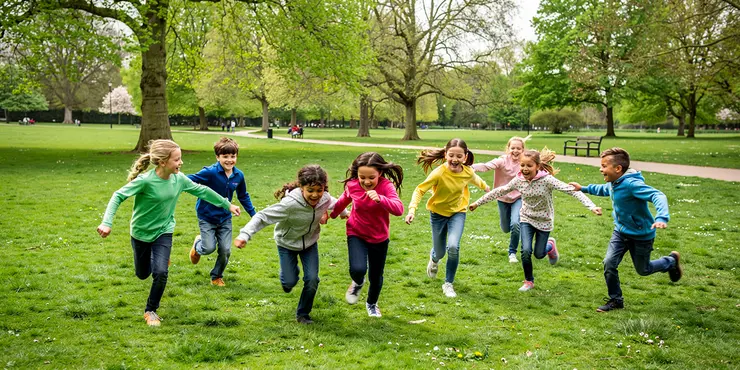
Study Finds Alarming Increase in Childhood Obesity Rates Post-Pandemic
Relevance: 46%
-
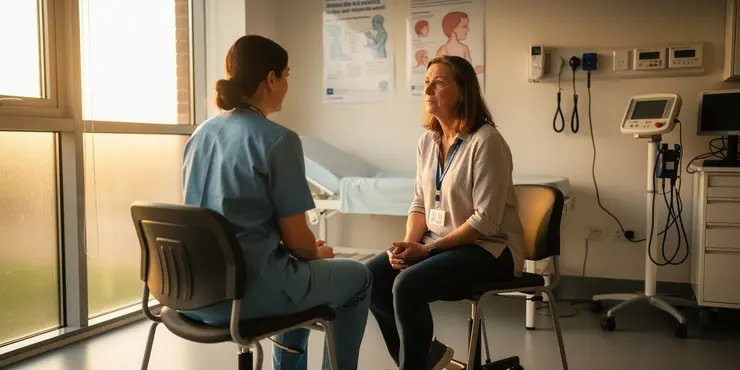
Are UK's Post-Pandemic Work Habits Harming Mental Wellbeing?
Relevance: 44%
-
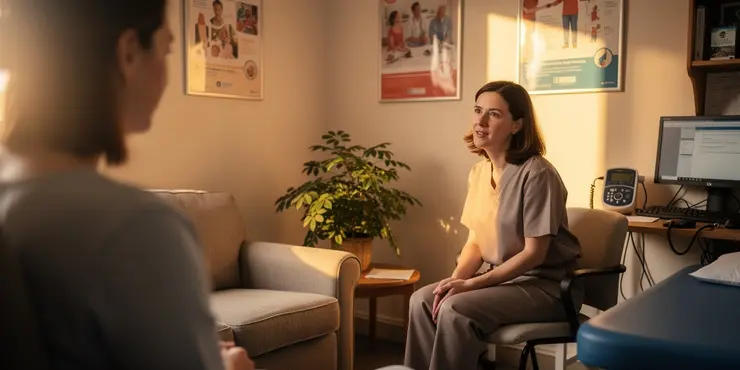
Are UK's Post-Pandemic Work Habits Harming Mental Wellbeing?
Relevance: 42%
-
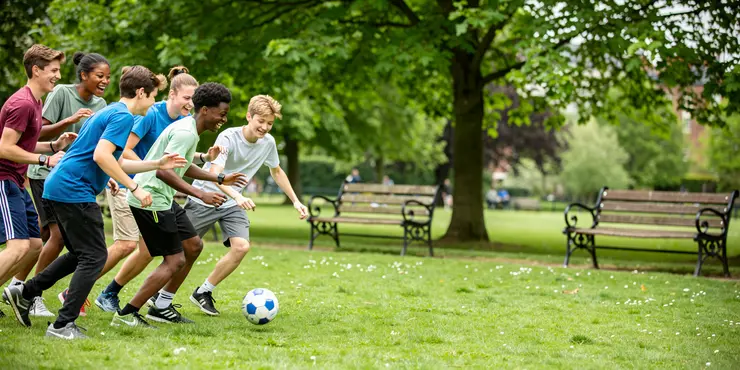
Healthy Habits for Teens
Relevance: 35%
-

What are Healthy Start vouchers?
Relevance: 34%
-
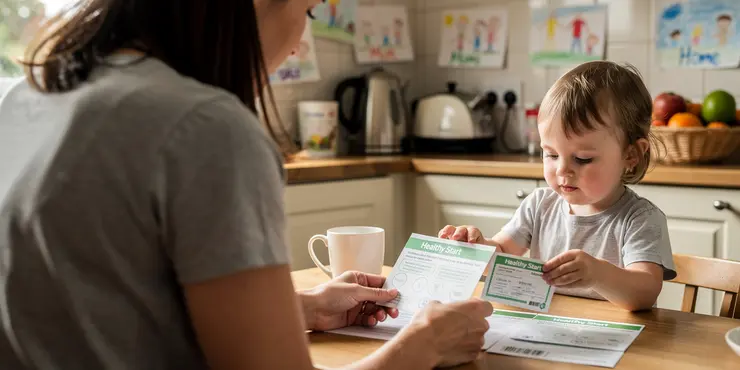
Who is eligible for Healthy Start vouchers?
Relevance: 33%
-

What are Healthy Start vouchers?
Relevance: 33%
-
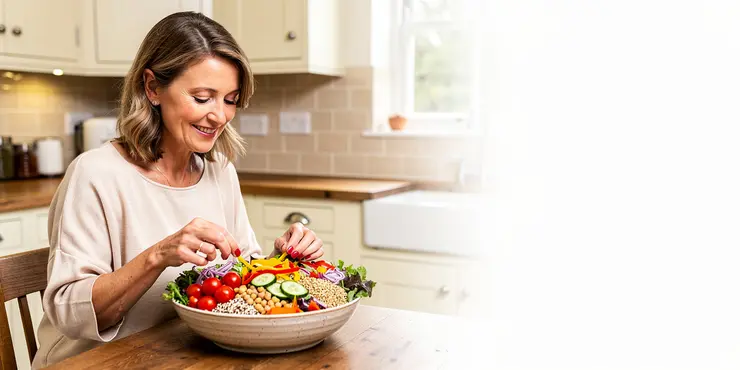
What lifestyle changes can improve gut health and support healthy aging?
Relevance: 32%
-
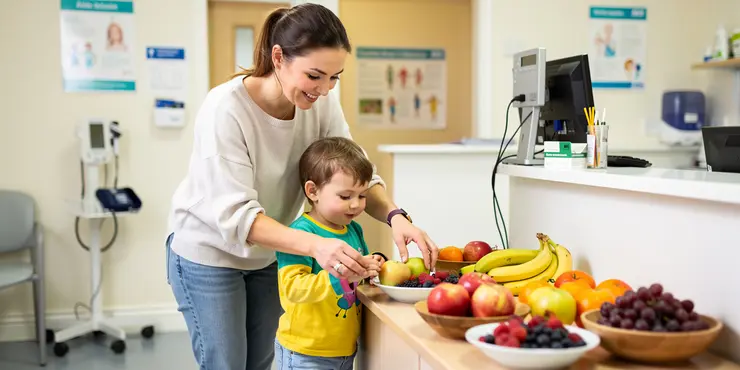
What are Healthy Start vouchers in the UK?
Relevance: 32%
-
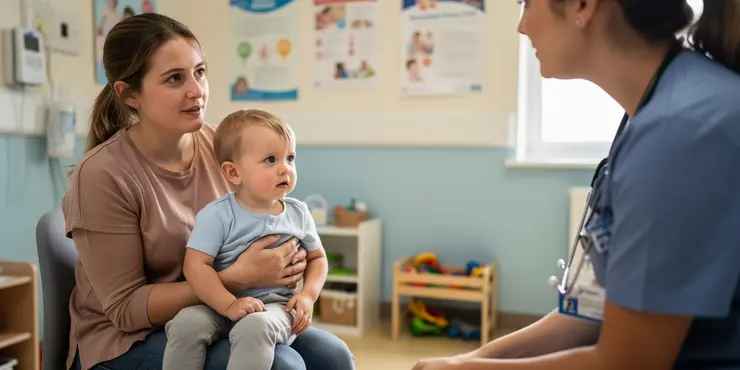
Who is eligible for Healthy Start vouchers?
Relevance: 32%
-
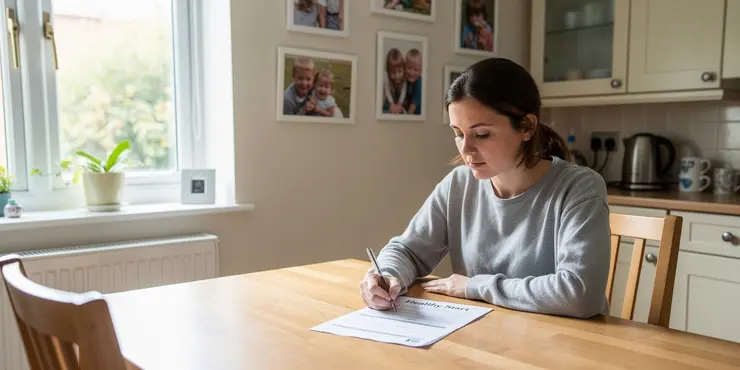
How can I apply for Healthy Start vouchers?
Relevance: 31%
-

Can lifestyle changes help prevent testicular cancer?
Relevance: 31%
-
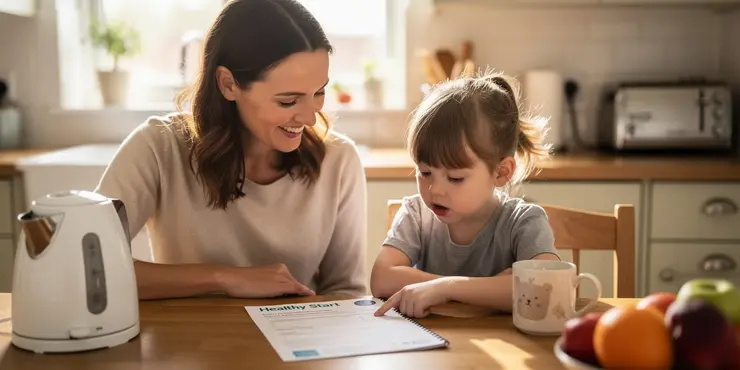
How can I apply for Healthy Start vouchers?
Relevance: 31%
-
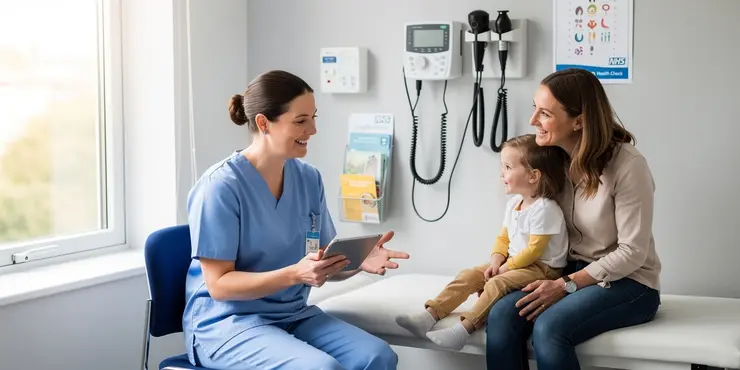
Preventative Care: What Your Family Needs
Relevance: 30%
-

What can I buy with Healthy Start vouchers?
Relevance: 30%
-
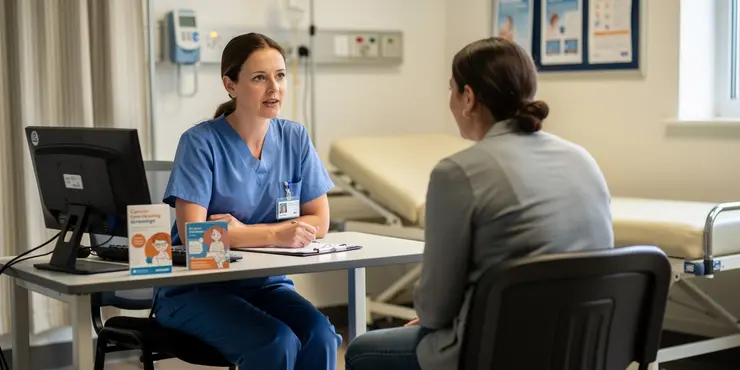
Can lifestyle changes impact the efficacy of cancer screening?
Relevance: 29%
-
What types of fats are healthy to consume?
Relevance: 29%
-
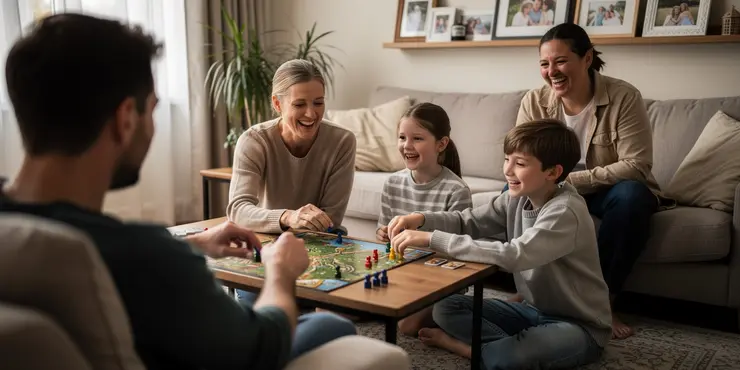
The Benefits of Family Activities
Relevance: 28%
-
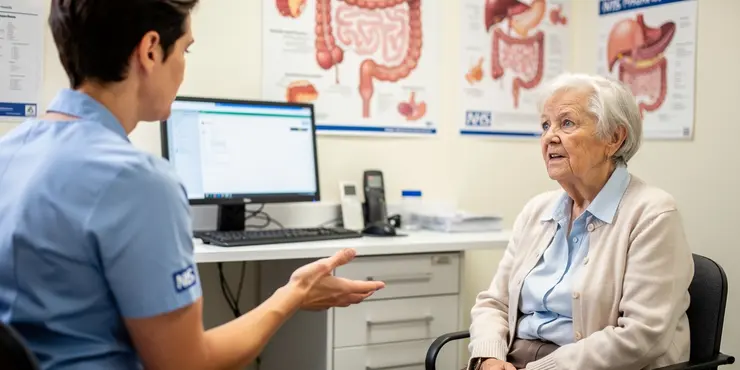
Can maintaining a healthy gut help slow down aging?
Relevance: 28%
-
Can lifestyle changes also help prevent colorectal cancer?
Relevance: 28%
-
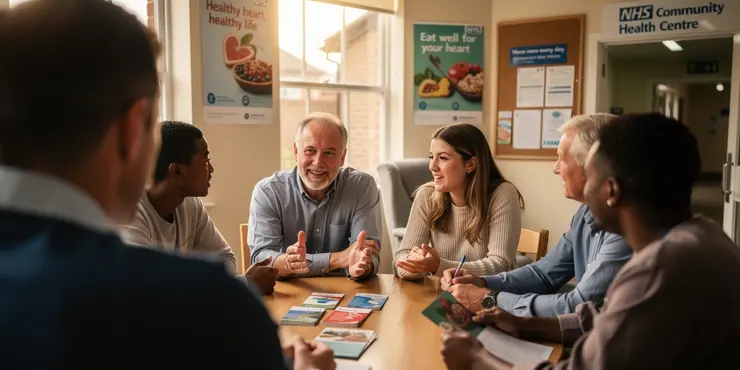
What is the role of lifestyle modification in heart attack and stroke prevention?
Relevance: 27%
-
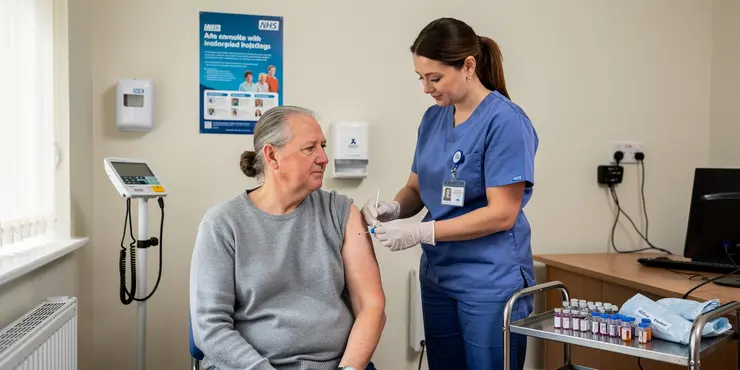
Is the flu jab necessary for healthy individuals?
Relevance: 27%
-
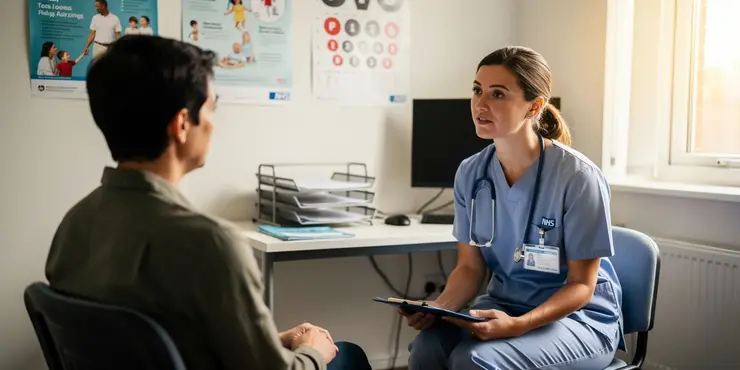
How does family history affect the risk of bowel cancer?
Relevance: 27%
-
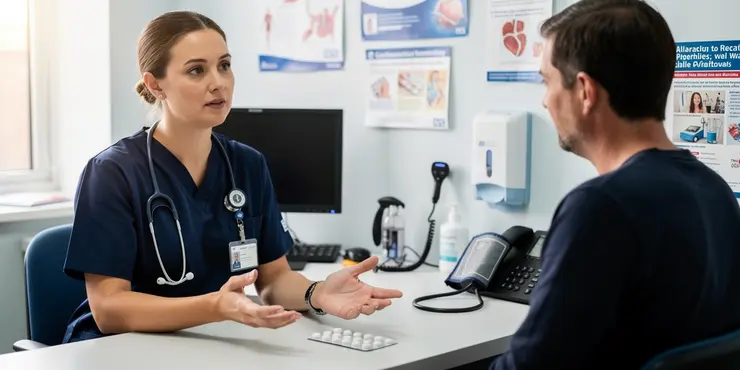
Should people with a family history of colorectal cancer take aspirin?
Relevance: 26%
-
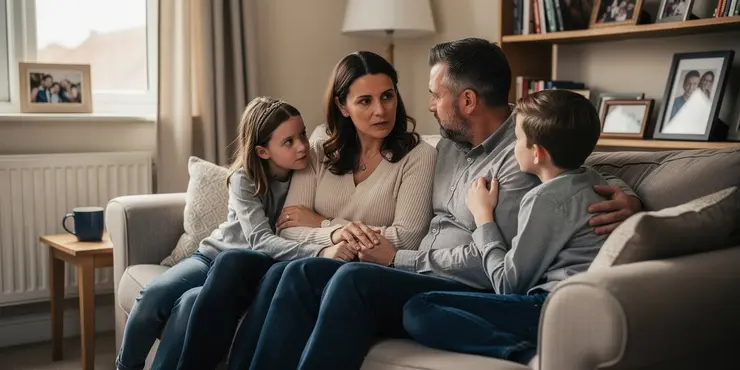
Mental Health Support Resources for Families
Relevance: 26%
-
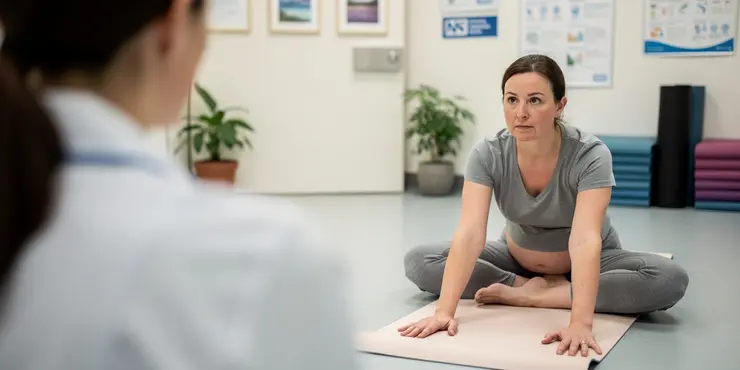
Can lifestyle changes help with postnatal depression?
Relevance: 26%
-
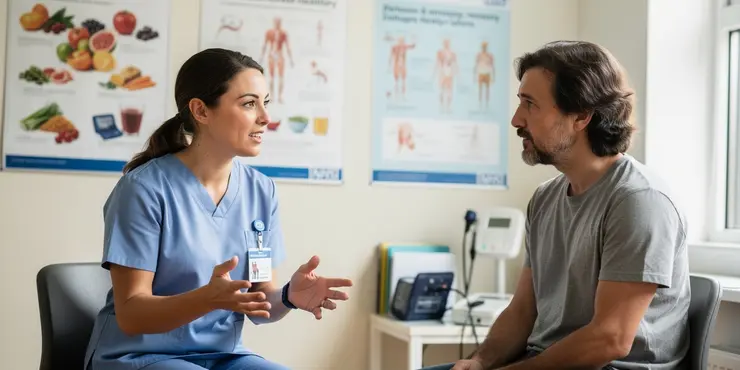
Top 10 Tips for Healthy Eating
Relevance: 26%
-

Can lifestyle changes help manage ADHD?
Relevance: 26%
-
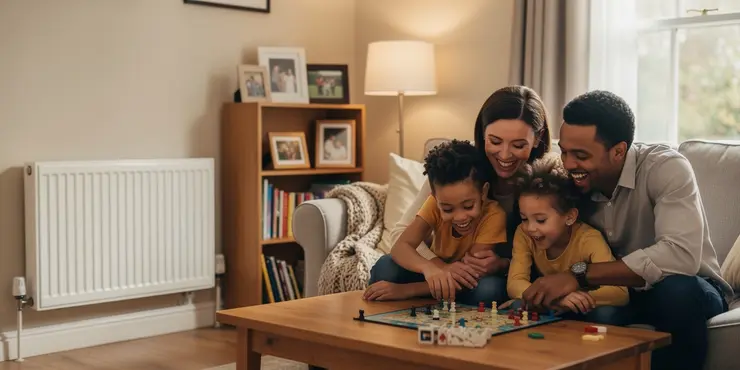
Mental Health Support for Families: Resources and Strategies
Relevance: 26%
-
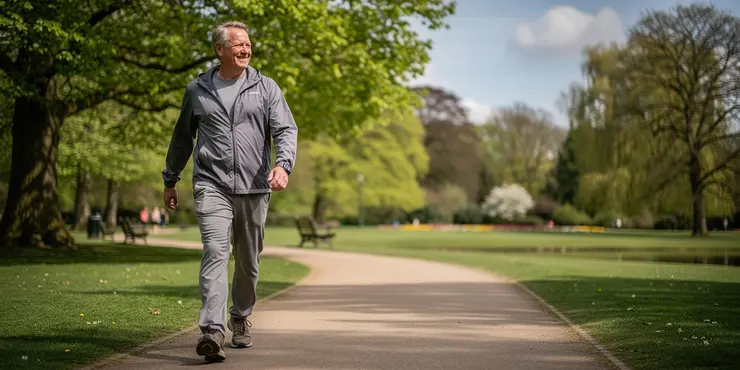
Can lifestyle changes reduce the need for medication for heart disease prevention?
Relevance: 26%
-
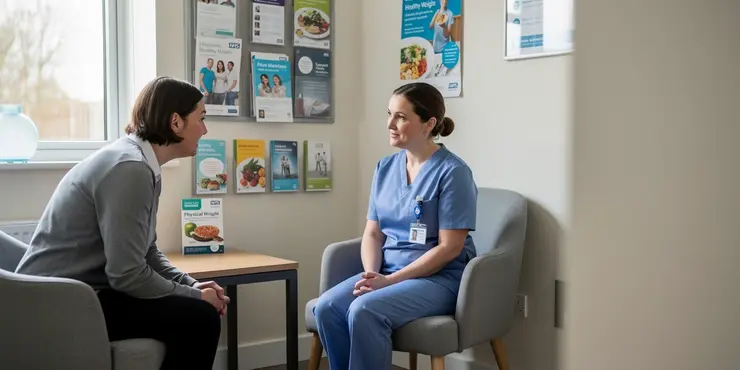
Do lifestyle changes need to accompany Ozempic for weight loss?
Relevance: 26%
-
What lifestyle changes can lower my child's risk of type 1 diabetes?
Relevance: 26%
-
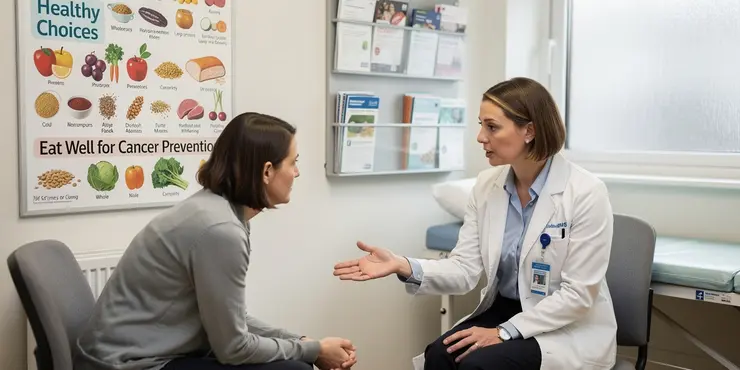
Can lifestyle changes help reduce bowel cancer risk?
Relevance: 25%
-
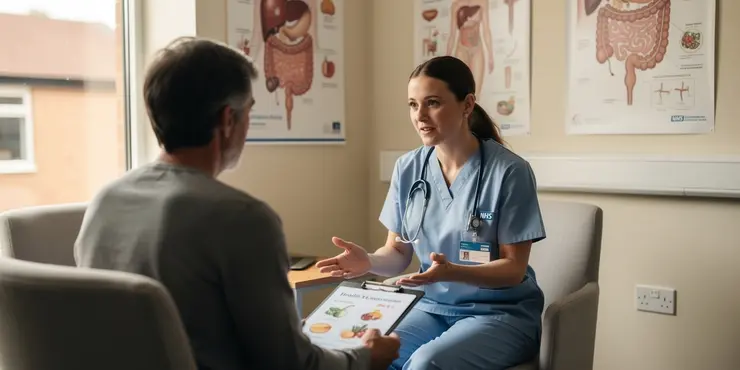
Can diet or lifestyle changes prevent appendicitis?
Relevance: 25%
-
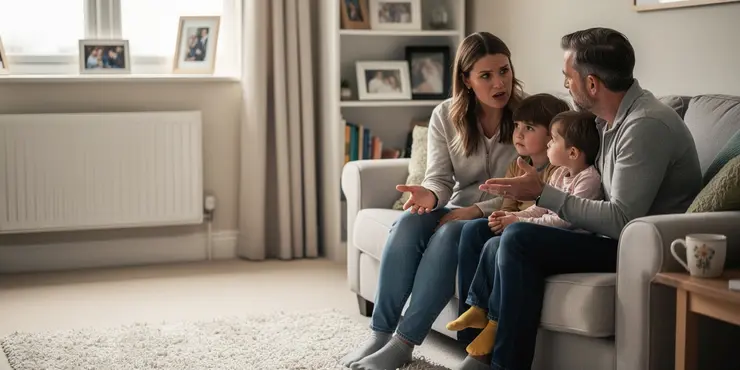
Understanding and Managing Respiratory Illnesses in Families
Relevance: 25%
-
Can orange juice be part of a healthy diet?
Relevance: 25%
-
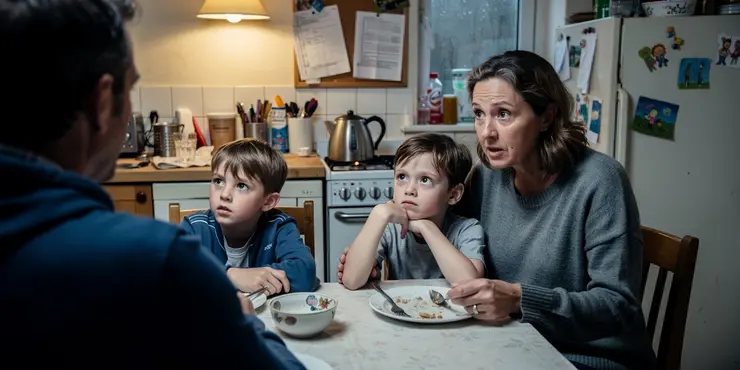
Impact of Rising Living Costs on Family Health
Relevance: 25%
-
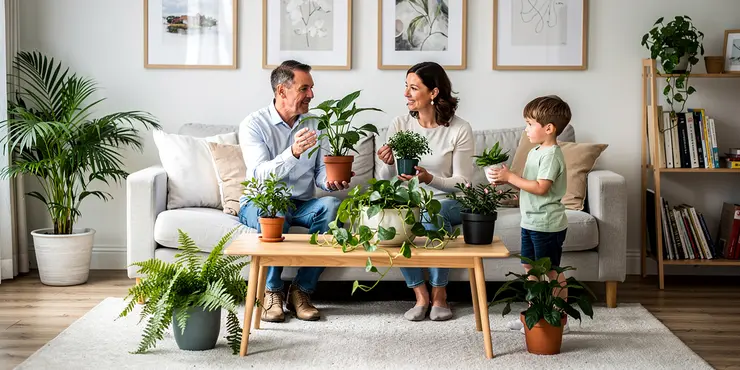
Building a Healthy Home Environment
Relevance: 25%
-
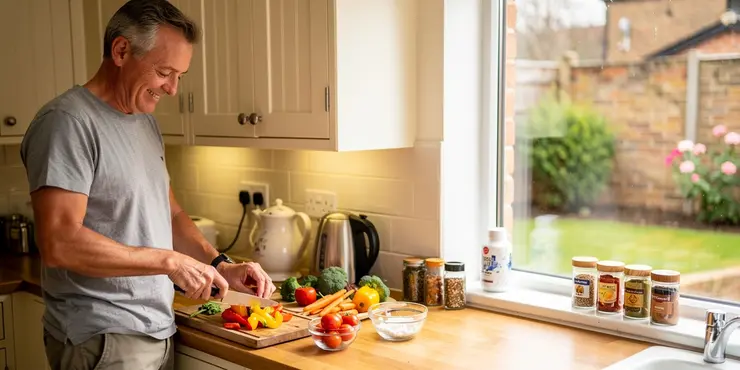
Are there lifestyle changes recommended with Baxdrostat?
Relevance: 25%
Healthy Family Lifestyle Tips Post-Pandemic
Prioritise Mental Health
The pandemic has taken a toll on everyone's mental health, so it’s crucial to prioritise this aspect of wellbeing. Regularly engage in conversations about feelings and support each other. Encourage mindfulness practices such as meditation or yoga to reduce stress and anxiety. Seeking professional help should not be hesitated if needed.
Maintain a Balanced Diet
Nutritional habits may have shifted during the pandemic, but it's important to return to or establish a balanced diet. Focus on a variety of fruits, vegetables, whole grains, and lean proteins. Limit processed foods and sugar intake. Cooking together can also be a fun family bonding activity, allowing everyone to participate in meal planning and preparation.
Stay Active
Physical activity is essential for overall health. Aim for family-friendly exercises such as walking, biking, or even playing sports together. The UK's parks and green spaces offer great opportunities for outdoor activities which can boost physical and mental health. Indoor exercises, like a dance session or online workout classes, can be engaging as well.
Create a Routine
Having a daily routine can bring structure and normalcy back into your lives, especially for children. A balanced schedule that includes work, school, leisure, and rest can enhance productivity and reduce stress. Make sure to include time for physical activities, healthy meals, and social interactions, even if virtual.
Reduce Screen Time
With the increase in remote work and online schooling, screen time has likely surged. Set limits on recreational screen time and encourage other activities such as reading, puzzles, crafts, or outdoor play. This can help in preventing eye strain and promoting better sleep hygiene.
Promote Good Sleep Hygiene
Adequate sleep is critical for all family members. Create a sleep-friendly environment by maintaining a consistent bedtime routine and ensuring the bedroom is dark, quiet, and cool. Limit electronic devices before bedtime to encourage better sleep quality.
Nurture Social Connections
Relationships play a vital role in emotional health. Although in-person interactions may still be limited, utilise technology to stay connected with friends and extended family. Schedule regular virtual meet-ups or phone calls to maintain these important bonds.
Practice Hand Hygiene and Cleanliness
Continue to practice good hand hygiene by washing hands frequently with soap and water. Make cleaning and disinfecting common areas and frequently touched surfaces a regular habit to prevent the spread of germs within the household.
Healthy Family Lifestyle Tips After the Pandemic
Take Care of Your Mind
The pandemic has been hard for everyone's mental health. It is important to look after our feelings. Talk to each other about how you are feeling. Try activities like meditation or yoga to feel calm. If you need more help, talking to a doctor or therapist is okay.
Eat Healthy Food
During the pandemic, eating habits might have changed. It is important to eat a balanced diet. Eat different fruits, vegetables, and grains. Also, eat lean proteins like chicken or fish. Try not to eat too much food from packets or too much sugar. Cooking together as a family can be fun and help everyone eat well.
Keep Moving
Exercise is good for health. Do fun activities as a family like walking, biking, or playing sports. Parks are nice places to be active and feel good. Inside, you can dance or join a workout class online.
Make a Daily Schedule
Having a routine helps everyone, especially kids. Plan time for work, school, rest, and play. Include time for exercise, eating healthy, and chatting with friends, even online.
Limit Screen Time
We use screens a lot more now. Try to take breaks from screens. Do activities like reading, puzzles, crafts, or playing outside. This can help you rest your eyes and sleep better.
Sleep Well
Good sleep is important for everyone. Go to bed at the same time every night. Make sure the bedroom is dark and quiet. Turn off screens before bedtime to help get good sleep.
Stay Connected with Friends
Friends and family make us happy. You can talk to them using video calls or phone calls. Set regular times to catch up and chat.
Keep Clean and Healthy
Wash your hands often with soap and water. Clean things that people touch a lot in the house. This helps stop germs from spreading.
Frequently Asked Questions
How can we maintain a healthy diet for the family post-pandemic?
Focus on whole foods like fruits, vegetables, lean proteins, and whole grains. Reduce processed foods and sugary drinks. Planning meals ahead can also help in maintaining a balanced diet.
What are some tips for encouraging physical activity for kids?
Incorporate activities like cycling, walking, or playing sports. Make exercise a family activity to set a positive example. Additionally, limit screen time to ensure they spend more time on physical activities.
How can we manage mental health as a family post-pandemic?
Encourage open communication about feelings and experiences. Practice mindfulness or meditation together. Ensure everyone gets adequate sleep and seek professional help if needed.
What are safe ways to socialise with others?
Opt for outdoor or well-ventilated indoor spaces. Follow current public health guidelines, which may include mask-wearing and social distancing. Stay informed about the latest recommendations from health authorities.
How can we ensure our home is a healthy environment?
Keep your home clean and well-ventilated. Use non-toxic cleaning products. Declutter regularly to reduce stress and ensure everyone has a personal space.
What should we include in our home first aid kit post-pandemic?
Include basics like bandages, antiseptics, pain relief, and any necessary medications. Also consider adding items that were essential during the pandemic, such as hand sanitiser and face masks.
How can we limit screen time as a family?
Set specific times for screen use, and encourage other activities like reading, crafts, or outdoor play. Use apps to monitor and limit screen time if necessary.
What are some healthy snack options for children?
Opt for snacks like fresh fruit, nuts, yogurt, vegetable sticks with hummus, or whole-grain crackers. Avoid snacks high in sugar and artificial ingredients.
How can parents balance work-from-home with family life?
Create a designated workspace to separate work from family areas. Establish a routine that includes breaks and time for family activities. Communication with employers about flexible hours can also be helpful.
What are the benefits of outdoor activities for the family?
Outdoor activities improve physical health, enhance mood, reduce stress, and provide opportunities for family bonding. They also help in getting essential vitamin D from sunlight.
How can we continue practicing good hygiene habits?
Maintain habits like regular handwashing, using hand sanitiser, and cleaning frequently-touched surfaces. Teach children the importance of hygiene in preventing illness.
What are some effective ways to boost our immune system?
Eat a balanced diet rich in vitamins and minerals, exercise regularly, get adequate sleep, and manage stress. Consistency in these habits is key to maintaining a strong immune system.
How can we make meal planning a family activity?
Involve everyone in the planning process by letting each family member choose meals or contribute ideas. Use this as an opportunity to teach children about nutrition and cooking skills.
What should we know about COVID-19 vaccinations for children?
Stay informed about the latest recommendations from the NHS and health authorities regarding age-appropriate vaccinations. Consult with your healthcare provider to discuss any concerns.
How can we support our children's education post-pandemic?
Create a structured learning environment at home, encourage regular study habits, and stay in touch with teachers. Support their emotional well-being as they adjust to any post-pandemic educational changes.
How can we keep eating healthy food for the family after the pandemic?
Eating healthy is important for everyone. Here are some easy tips to help your family eat well:
- Eat fruits and vegetables: Try to have some with every meal. They help keep you strong and healthy.
- Drink water: Water is the best drink. Try to drink it often instead of soda or sugary drinks.
- Cook together: Make meals with your family. It’s fun and helps you learn about healthy food.
- Plan your meals: Think about what you will eat for the week. Make a shopping list to help you buy what you need.
- Try new foods: It’s good to try different healthy foods. You might find new things you like!
Remember to make eating healthy fun. Use colors, shapes, or even sing songs about foods. You can use pictures or apps to help plan meals. Stay happy and healthy!
Eat foods that are good for you, like fruits, vegetables, lean meats, and whole grains. Try to eat less junk food and sugary drinks. Planning your meals before can help you eat healthy.
How can we help kids be more active?
Here are some easy ways to help kids move more:
- Play outside: Go to the park or play in the yard.
- Join a team: Try sports like soccer or basketball.
- Make it fun: Dance to music or play tag.
- Walk together: Go for a walk or a bike ride.
- Set goals: Count steps or minutes active every day.
Tools that can help:
- Pedometer: Counts steps as they walk.
- Apps: Find apps with fun exercise games.
Try fun things like riding bikes, walking, or playing games. Do exercise together as a family to show it's good. Also, spend less time on phones or TV so there's more time for moving and playing.
How can we take care of our feelings as a family after the pandemic?
The pandemic was a hard time for everyone. Here are some simple ways to feel better together:
- Talk and Listen: Sit together and talk about how you feel. Listening is important too.
- Play and Have Fun: Do fun activities together. Play games, draw, or go for a walk.
- Keep a Routine: Have a regular plan for each day. It makes everyone feel safe.
- Be Kind: Say nice things to each other and be supportive.
- Ask for Help: If you still feel upset, talk to a doctor or counselor.
These steps can help your family feel happy and strong.
Talk about your feelings and experiences with each other. Try doing calming activities like mindfulness or meditation together. Make sure everyone gets enough sleep. If you need more help, talk to a doctor or counselor.
How can you meet and be with friends safely?
Choose to be outside or in a place where fresh air can come in. Listen to health experts who might say to wear a mask and keep space between people. Keep up with what health experts say to do next.
How can we make sure our home is a safe and healthy place to live?
Here are some ways to help:
- Keep your home clean and tidy.
- Open windows to get fresh air.
- Make sure you have good light in every room.
- Wash your hands with soap to stop germs.
- Use safe cleaning products with no strong smells.
If reading is hard, try these tools:
- Use audiobooks to listen instead of reading.
- Ask someone to read with you.
- Break up the reading into small, simple parts.
Keep your home tidy and let fresh air in. Use cleaning products that are safe. Clear away things you don't need often. This helps everyone feel calm and have their own space.
What do we need in our home first aid kit after the pandemic?
Make sure you have basic things like bandages, medicine to clean cuts, and things to help with pain. Don't forget any medicine you need to take. It's also good to have things that were important during the pandemic, like hand sanitiser and face masks.
How can we spend less time on screens as a family?
Here are some easy ideas to help your family:
- Make a plan together. Talk about how long you can use screens each day.
- Set a timer. Use a clock or an app to remind you when it's time to stop.
- Do fun things that don't need screens, like playing outside or reading a book.
- Have screen-free times, like during dinner or before bed.
- Be a screen-time role model. Show them how you use screens wisely.
It helps to talk and work together as a family.
Choose times for using screens. Do other fun things like reading, making crafts, or playing outside. You can use apps to help watch how much time is spent on screens.
What are some good snacks for kids?
Here are some good snacks that are healthy and yummy:
- Fruit: Try apples, bananas, or grapes.
- Veggies: Carrot sticks or cucumber slices are great.
- Yogurt: Make sure it's low in sugar.
- Nuts: Nuts like almonds or walnuts are good, but be careful if there's an allergy.
- Cheese: Small cheese cubes or string cheese.
- Whole-grain crackers: These are tasty with cheese.
Tips:
Use colorful plates to make the snacks more fun. Let kids help pick their snacks to get them excited.
Choose snacks like fresh fruit, nuts, yogurt, veggie sticks with hummus, or whole-grain crackers. Try not to eat snacks with a lot of sugar and fake stuff.
How can parents work from home and have family time?
Here are some tips to help:
- Make a plan or timetable. Write down when you will work and when you will spend time with family.
- Set up a quiet place to work. This can help you focus on your job.
- Take breaks. Spend a little time with your family during breaks.
- Talk with your family about your work times. This way, they know when you need to work.
- Use reminders or alarms to keep you on track with your tasks.
- Ask for help if you need it. Family members can help with chores or other tasks.
You can try tools like:
- Calendar apps to plan your day.
- Timers to remind you to take breaks.
Remember, it is okay to ask for help and take things one step at a time. Balancing work and family is something to learn and practice.
Make a special place in your home just for work. Keep this place separate from where your family spends time. Try to follow a daily routine. This means doing things in the same order every day. Make sure to take breaks and have time for family fun. Talk to your boss about working hours that can change if you need them to.
Why is it good for families to do things outside?
Doing things outside helps you stay healthy and feel happy. It can make you less stressed and gives families a chance to spend time together. Being outside in the sun helps you get vitamin D, which is good for you.
To make reading easier, you can:
- Use tools like text-to-speech to hear the words.
- Read slowly and take breaks when needed.
- Use a ruler or finger to keep your place when reading.
How can we keep staying clean and healthy?
Here are some simple tips:
- Wash your hands with soap and water for 20 seconds.
- Brush your teeth in the morning and before bed.
- Take a bath or shower to keep your body clean.
- Wear clean clothes every day.
Using tools like a toothbrush timer or a sun clock can help!
Keep washing your hands often. Use hand gel. Clean things that people touch a lot. Show kids why keeping clean stops sickness.
How can we make our body's defense stronger?
Here are some simple ways to help keep your body healthy and strong: 1. **Eat healthy foods**: - Eat lots of fruits and vegetables. - Try to have different colors of foods on your plate. 2. **Get enough sleep**: - Sleep is like a recharge for your body. - Try to get 8 to 10 hours of sleep every night. 3. **Exercise regularly**: - Play games that make you move, like running or dancing. - Aim for at least 1 hour of activity every day. 4. **Drink water**: - Water helps your body work well. - Try to drink 6 to 8 glasses of water each day. 5. **Wash your hands**: - Wash hands with soap and water. - Wash before eating and after using the bathroom. 6. **Stay away from smoke**: - Smoke can make it harder for your body to fight germs. 7. **Laugh and be happy**: - Being happy can help keep your body healthy. - Find things that make you laugh or smile. Supportive tools: - Use pictures or videos to learn more about these tips. - Ask a grown-up to help you read and try these tips together.Eat lots of different healthy foods with vitamins and minerals. Try to move your body with exercise often. Sleep well and make sure you get enough rest. Try to keep stress low. Doing these things all the time helps keep your body strong.
How can we plan meals together as a family?
Planning meals can be fun for everyone! Here are some tips:
- Have a meal planning night. Pick a day to sit together and talk about meals.
- Make it a game. Let each person choose one meal for the week.
- Write a list. Use a big board or paper to write your meal plan.
- Use pictures. Draw or find pictures of food to help decide what to eat.
- Ask questions. What is everyone's favorite food?
Tools that can help:
- Pictograms: Use simple pictures to show meal ideas.
- Apps: Try using simple meal planning apps with pictures.
Remember, planning meals together can make it more fun and easy!
Let everyone help plan meals. Each person in the family can pick a meal or share ideas. This is a good time to teach kids about healthy food and cooking.
What do we need to know about COVID-19 shots for kids?
COVID-19 is a sickness that can make people feel very sick.
A vaccine, or shot, helps stop people from getting sick.
Here are some important things to know about COVID-19 shots for kids:
- The shot can help keep kids safe from getting very sick.
- Doctors say the shot is good for kids.
- If you have questions, you can ask a doctor or nurse.
It is okay to feel nervous about shots.
You can talk to someone you trust, like a parent, about your worries.
There are things that can help you feel better:
- Take deep breaths to help you relax.
- Bring a toy or book to the doctor's office.
- Watch a movie or listen to music to feel calm.
If you need help, you can ask a doctor, nurse, or teacher.
Find out what vaccines people your age need from the NHS or health experts. Talk to your doctor if you have questions.
How can we help our children learn after the pandemic?
It can be hard for children to learn after the pandemic. Here are some ways to help:
- Talk with your child about their day at school.
- Make a quiet place at home to do homework.
- Read together for fun.
- Use simple apps to practice reading and maths.
Ask your child's teacher for help if needed.
Make a special place at home for learning. Help your child study regularly and talk with their teachers often. Be caring and supportive as they get used to changes in school after the pandemic.
Useful Links
This website offers general information and is not a substitute for professional advice.
Always seek guidance from qualified professionals.
If you have any medical concerns or need urgent help, contact a healthcare professional or emergency services immediately.
Some of this content was generated with AI assistance. We’ve done our best to keep it accurate, helpful, and human-friendly.
- Ergsy carfully checks the information in the videos we provide here.
- Videos shown by Youtube after a video has completed, have NOT been reviewed by ERGSY.
- To view, click the arrow in centre of video.
- Most of the videos you find here will have subtitles and/or closed captions available.
- You may need to turn these on, and choose your preferred language.
- Go to the video you'd like to watch.
- If closed captions (CC) are available, settings will be visible on the bottom right of the video player.
- To turn on Captions, click settings .
- To turn off Captions, click settings again.
More Items From Ergsy search
-

Healthy Family Lifestyle Tips Post-Pandemic
Relevance: 100%
-

Study Finds Alarming Increase in Childhood Obesity Rates Post-Pandemic
Relevance: 46%
-

Are UK's Post-Pandemic Work Habits Harming Mental Wellbeing?
Relevance: 44%
-

Are UK's Post-Pandemic Work Habits Harming Mental Wellbeing?
Relevance: 42%
-

Healthy Habits for Teens
Relevance: 35%
-

What are Healthy Start vouchers?
Relevance: 34%
-

Who is eligible for Healthy Start vouchers?
Relevance: 33%
-

What are Healthy Start vouchers?
Relevance: 33%
-

What lifestyle changes can improve gut health and support healthy aging?
Relevance: 32%
-

What are Healthy Start vouchers in the UK?
Relevance: 32%
-

Who is eligible for Healthy Start vouchers?
Relevance: 32%
-

How can I apply for Healthy Start vouchers?
Relevance: 31%
-

Can lifestyle changes help prevent testicular cancer?
Relevance: 31%
-

How can I apply for Healthy Start vouchers?
Relevance: 31%
-

Preventative Care: What Your Family Needs
Relevance: 30%
-

What can I buy with Healthy Start vouchers?
Relevance: 30%
-

Can lifestyle changes impact the efficacy of cancer screening?
Relevance: 29%
-
What types of fats are healthy to consume?
Relevance: 29%
-

The Benefits of Family Activities
Relevance: 28%
-

Can maintaining a healthy gut help slow down aging?
Relevance: 28%
-
Can lifestyle changes also help prevent colorectal cancer?
Relevance: 28%
-

What is the role of lifestyle modification in heart attack and stroke prevention?
Relevance: 27%
-

Is the flu jab necessary for healthy individuals?
Relevance: 27%
-

How does family history affect the risk of bowel cancer?
Relevance: 27%
-

Should people with a family history of colorectal cancer take aspirin?
Relevance: 26%
-

Mental Health Support Resources for Families
Relevance: 26%
-

Can lifestyle changes help with postnatal depression?
Relevance: 26%
-

Top 10 Tips for Healthy Eating
Relevance: 26%
-

Can lifestyle changes help manage ADHD?
Relevance: 26%
-

Mental Health Support for Families: Resources and Strategies
Relevance: 26%
-

Can lifestyle changes reduce the need for medication for heart disease prevention?
Relevance: 26%
-

Do lifestyle changes need to accompany Ozempic for weight loss?
Relevance: 26%
-
What lifestyle changes can lower my child's risk of type 1 diabetes?
Relevance: 26%
-

Can lifestyle changes help reduce bowel cancer risk?
Relevance: 25%
-

Can diet or lifestyle changes prevent appendicitis?
Relevance: 25%
-

Understanding and Managing Respiratory Illnesses in Families
Relevance: 25%
-
Can orange juice be part of a healthy diet?
Relevance: 25%
-

Impact of Rising Living Costs on Family Health
Relevance: 25%
-

Building a Healthy Home Environment
Relevance: 25%
-

Are there lifestyle changes recommended with Baxdrostat?
Relevance: 25%


